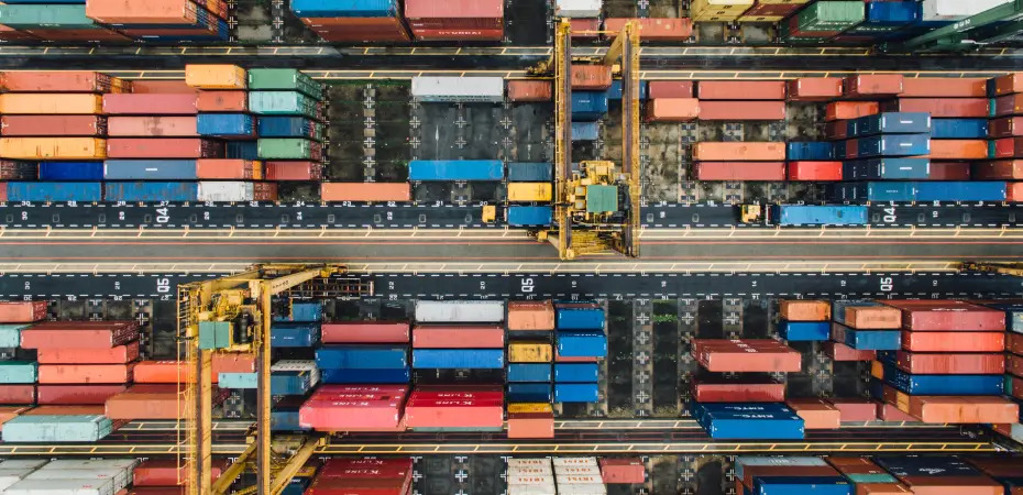No, trade isn’t the primary reason for global poverty’s decline over the last 50 years.
If you’ve ever gone down the right-wing media rabbit hole, you’ve likely seen some variation on the “global trade and capitalism have unequivocally alleviated human poverty and suffering since the industrial revolution” argument.
For example, bestselling author Jordan Peterson published a video to his Facebook page called “The Only Systems That Seem To Lift People Out Of Absolute Poverty Are Free Market Capitalist Systems” where he starts by citing Venezuela’s decline in wealth over the last 30 years. Venezuela, mind you, has a smaller public sector employment percentage (18 per cent) than France (20 per cent) and Norway (29 per cent). This is only the beginning of the contradictions presented by Peterson’s video.
The most glaring aspect of Peterson’s thesis is that the country that lifted the most people out of poverty in the last 50 years is China. In fact, China has lifted around three quarters of the global population living in extreme poverty since the transformations undertaken by Deng Xiaoping in the ‘70s into the ‘80s. China is, however, far from a free market capitalist system. While I’m not ready to praise the Chinese model, it’s simply a fact that the success of that model has been due to aggressive state intervention in private markets; it’s a complete top-down structure—hardly a free market.
Harvard professor of cognitive psychology Steven Pinker, was grilled for a similar reductionist argument on the alleviation of global poverty by Mehdi Hasan of Al Jazeera. Hasan probes Pinker’s argument in his book Enlightenment Now: The Case for Reason, Science, Humanism, and Progress that extreme poverty since the ‘90s shows a sharp declining trend according to the Global Bank’s setting the extreme poverty line at 1.90 USD a day. Hasan points out the arbitrariness of the 1.90 figure, in that if you measure extreme poverty at 5.50 USD, a billion people have been added to that level since 1981.
Even when it comes to the absolute figures, the picture of relative poverty alleviation in even the last 20 years itself is unclear. What figures can’t explain is that the history of many Third World countries had them being bullied by global financial institutions like the International Monetary Fund (IMF) into debt peonage causing structural poverty. As the late anarchist author David Graeber outlined at the outset of his book Debt: The First 5000 Years, after the OPEC oil crisis of the ‘70s, many Western banks had received large deposits of oil money from the petroleum nations abroad and invested them in Third World countries often, through sales-pitches to dictators — many of whom pocketed large portions of these investments in their personal bank accounts — at low interest rates which skyrocketed in the next decade causing the IMF to demand that these countries strip price controls and their social safety nets to pay it off causing mass poverty. Not to mention, the IMF pushed these countries to adopt free market models which the citizens didn’t even vote for and which didn’t address their poverty in the slightest.
Many South American countries fell prey to the Washington Consensus in the latter half of the 20th century as well. Take the democratically elected leader in Chile, Salvador Allende, who was ousted in a U.S.-backed coup leading to the brutal dictatorship of Augusto Pinochet. After Pinochet sealed the power vacuum, the World Bank and IMF began to see Chile as credible, unlike during the Allende years. The same was true in Brazil when the democratically elected Joao Goudart was on the receiving end of a three-year suspension of IMF loans until a military coup in 1964 that saw the loans start streaming back in shortly after. Then there’s U.S. president Ronald Reagan’s legacy of harshly embargoing the democratically elected Sandinista, Daniel Ortega, in Nicaragua and funding the counterrevolutionary faction of The National Guard, the “Contras.”
South America’s broad leftwing “pink tide” movement throughout the 21st century has been one of the key players in lifting global poverty. Recently reelected president of Brazil, Lula da Silva, in his first term as president, lifted millions out of extreme poverty through his state-directed Bolsa Família program which gave out over $8 billion worth in monthly stipends.
Needless to say, the idea that global poverty rates have been alleviated by free market capitalist policies and ideals is simply not true and, in fact, reproduces the structural poverty that global economic institutions such as the World Bank and International Monetary Fund have trafficked in creating for decades.

